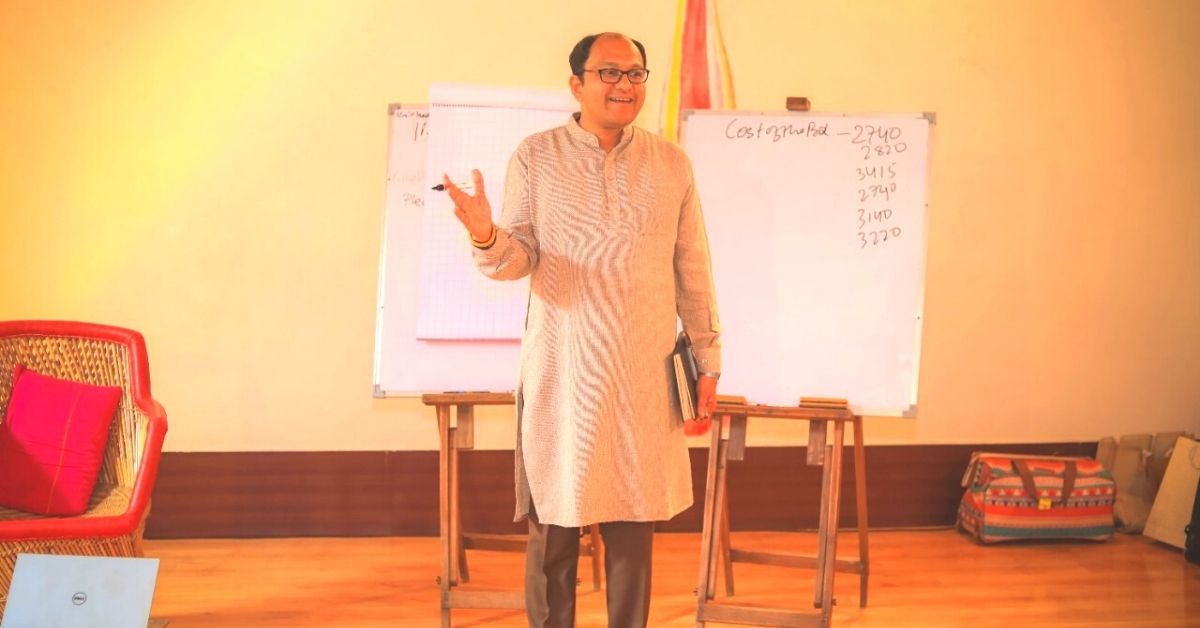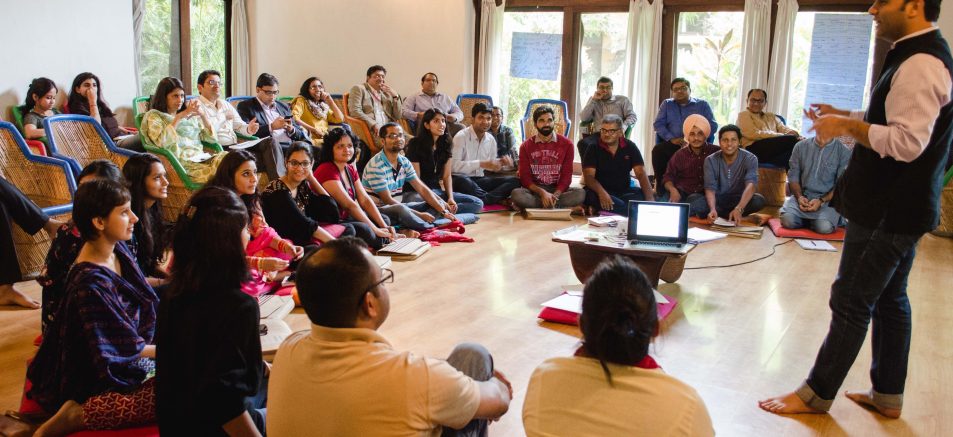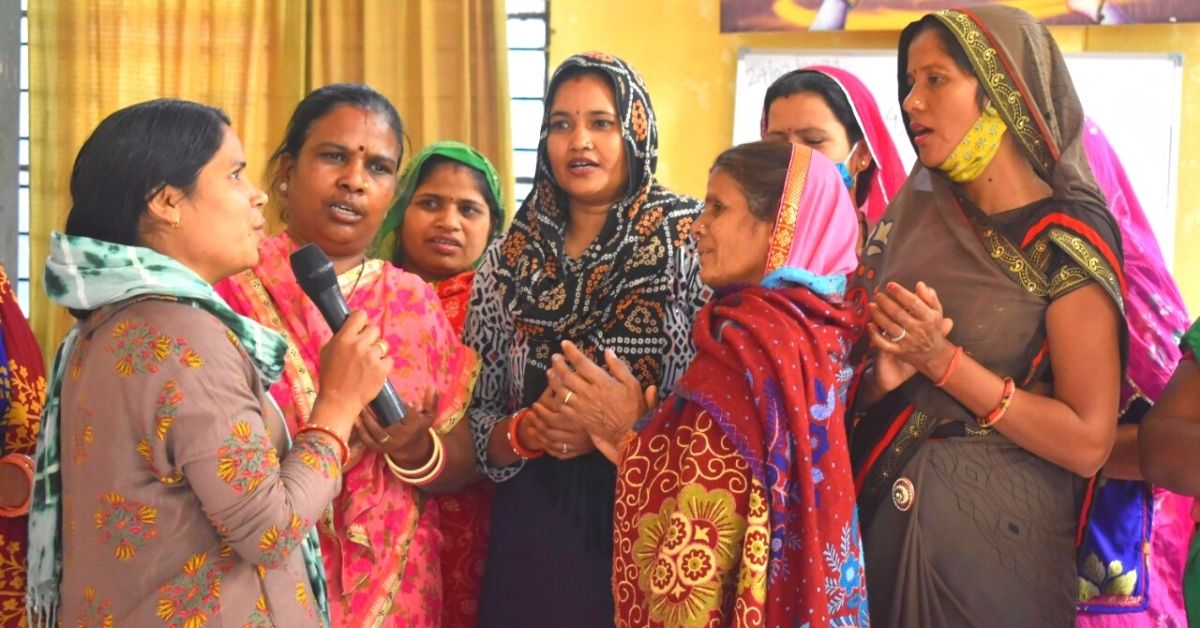Raisha Banu, the Founder of Child and Youth Development Foundation (CYDF), a not-for-profit social enterprise that works closely on quality school education, child nutrition and environmental conservation in the villages of Tirunelveli district, Tamil Nadu, credits the School for Social Entrepreneurship (SSE) India for developing her organisation.
“Earlier, I struggled to network or make decisions. However, action learning sessions, expert sessions, interaction with my co-fellows, and meeting other social entrepreneurs at SSE India, who made a positive impact, helped me come up with more solid ideas and actions. I would have lost hope of being a social entrepreneur without this opportunity,” says Raisha over email.
Similarly, Kanika Prajapat, an IIT-Delhi alumnus and co-founder of Kriya Labs, a sustainable packaging solutions venture, believes that without her experience at SSE India, she would have “lost more time thinking through every action and decision of her enterprise”.
“Interacting with my peers and experts and listening to their valuable opinions helped me a lot. I would’ve missed out on so many people who proved to be very resourceful to my enterprise. The biggest takeaway from SSE to this day is the network I created through the fellows, the mentors and people from the witness and expert sessions. Thanks to my stint at SSE India, I always find some connection related to my query, which otherwise would’ve taken me weeks to discover,” she says, in a conversation with The Better India earlier this week.
Since its inception in 2016, the SSE India — a non-profit, has supported more than 75 individuals seeking to engage in entrepreneurship for social benefits like Kanika and Raisha. In addition to the people that these social entrepreneurs have positively impacted through building organisations capable of achieving sustained benefits, SSE India has directly touched the lives of approximately 1.5 lakh people, according to its CEO Shalabh Mittal.
“This figure came out from a small study done by an external consultant to measure our impact. The figures shared are from the report that captures the impact our fellows have created. And their impact is what we see as the impact that we have created through them. That is the role of facilitators like us in the entrepreneurship ecosystem,” he claims.
But what does their programme, which lasts nine months each year, teach candidates/fellows?
“Our programmes support learners to achieve four main outcomes, all of which are crucial foundations for enabling them to start, grow and sustain organisations. These organisations go on to improve people’s lives and benefit communities. Emotional resourcefulness, social impact, entrepreneurial skills and building networks are what they learn when they are with us. The programme holds the hands of our fellows giving impetus to their natural tendency to reach out, develop, learn and mature. The programme includes practical learning, mentoring, project visits, and action learning – which together enable fellows to examine their idea, develop a business model, integrate their values and redefine social impact,” says Shalabh.
Beyond the like of Raisha and Kanika, SSE India has mentored the likes of Vidyut Mohan, the founder of Pirool Energy who was honoured as Young Champion of the Earth by the United Nations Environment Programme, Umang Sridhar, the founder of Khadigi who was listed in the Forbes 30 under 30 Asia 2019 and Naresh Sijapathi, the founder of Panah Foundation.

Teaching Diverse Sections of Society
Born and raised in Faridabad, Shalabh has nearly two decades of experience working with various social development organisations and has been part of several projects for international development organisations such as the World Bank, Food and Agriculture Organization (FAO) at the United Nations, Unicef and the Aga Khan Foundation, amongst others.
“We set up SSE India in 2016 with Jaivir Singh, Vice Chairman of PwC India Foundation, leading the process. Given my experience, he appointed me as founding CEO. Through SSE, I believe in passionately nurturing budding social entrepreneurs. I believe that all innovators are not entrepreneurs. Innovations need commercialisation. Hence, a strong ecosystem to support social innovations should be delivered in a social enterprise model,” he says.
Reflecting upon the journey of SSE India, Shalabh cites two reports that created the framework for his organisation. One is the British Council report titled ‘Social Enterprise – An overview of the policy framework in India’ which came out six months before SSE India was founded.
“The study reviewed the growth of social enterprises in India and the response of the ecosystem to its emerging needs. The report indicated that the absence of a formal social enterprise policy at the national or state level poses challenges. Another report, which came out the year before was by the Government of India titled ‘National Policy for Skill Development & Entrepreneurship 2015’. The British Council report and the National Policy made it very clear that there was a gap in accessible learning programmes for social entrepreneurs,” he recalls.
SSE India launched their flagship programme ‘Social Start-Up Fellowship Programme’ in April 2016 with an aspiration to make it inclusive and give it a national status. The emphasis was clear from the start—no education qualifications asked, no CV required. The only requirement was the functional knowledge of Hindi and English language to make this programme accessible to diverse groups of people.
“Our first batch of students belonged to diverse sections of the society—a school dropout, an IIT student, a college dropout, a migrant labour, a PhD and a medical doctor—all sitting together and learning. This has been a phenomenal learning experience for us to manage diversity and truly discover ‘Doing Learning Differently’,” adds Shalabh.

At SSE India, the individual is the epicentre. That person, he argues, has the power to create and sustain enterprises to serve a critical need of the community.
“We believe that learning by doing is a practical way to absorb knowledge and use it in the field. Our experience has revealed that a single organisation or enterprise cannot eradicate social issues such as poverty or inequality. We need to create a brigade of changemakers to create a positive transformation in society. We endeavour to provide a platform where like-minded and committed individuals come together to convert their ideas into reality through their social enterprises. We start by mobilising the experience of enterprising people across different sectors and look for individuals who have an understanding of the social issue they aim to address, gained either through direct experience or in-depth exposure to that issue. SSE India develops a social entrepreneur with an action-driven learning methodology,” explains Shalabh.
Mission Ahead
Recently, SSE India launched a fundraising campaign on ImpactGuru.com to empower women with entrepreneur skills at Jawahar Nagar Kutchi Basti, located on the Jaipur-Agra bypass. Home to about 5,000 households and 25,000 people, most of these families have been living there for the last 25 to 30 years. The average monthly income of the township was Rs 10,000 before the pandemic. But COVID-19, however, has affected the livelihood of the entire basti.
“We were approached by FINISH Society and PwC India Foundation to support them in providing skills to women who were devastated and had lost their livelihoods due to the pandemic. SSE India has launched a fundraising campaign on ImpactGuru to support the cause towards training more women, providing seed capital for their business, and renting a ‘production and resource centre’ for them to undertake business activities to ensure hygiene and safety of the products they make. With the money raised from the fundraiser, we will provide them with access to knowledge, building skill sets, and mindset via a pool of experts and mentors and get them access to funds to pilot out their business ideas and develop their enterprise. We have been able to raise Rs. 5.61 lakhs till date via our fundraiser,” claims Shalabh.

Thus far SSE India has received financial support from entities like PwC, USHA, Peacetech Labs, the Government of Chhattisgarh, TRIF, National Peroxide Limited.
Like conventional entrepreneurs, social entrepreneurs need an ecosystem to help them innovate, bear risks, take bold steps and embrace vulnerability, and SSE India seeks to provide that platform for them.
“Our theory of change is enshrined in how we help prove and improve how change happens. We mobilise the experience of enterprising people who have an understanding of the social issue they aim to address and invest in them to establish new enterprises or sustain and scale existing ones so that they create sustainable solutions. India has the right combination of innovative people, entrepreneurs, infrastructure and services, which can tap into the existing networks for giving the right direction and impetus to the ‘Indian entrepreneurial and risk taking’ society that works towards solving its most complex problems,” says Shalabh.
Based on their philosophy and understanding of the nuances of the social entrepreneurship space in India, SSE India started the first residential programme to build a community of social entrepreneurs and provide them with a platform to learn from each other.
As Shalabh explains, the nine-month Bespoke Fellowship Programme has 23-25 contact days and is structured around these four pillars:
Interactive sessions with witnesses and experts:
– Their ‘witness’ is an experienced social entrepreneur who shares their journey, learning and insight from their experience and running a social impact organisation.
– Subject matter ‘experts’ lead interactive workshops to help learn the business basics on 14 focus areas to help them navigate through various elements of running an enterprise.
Mentor:
– Each fellowship participant gets paired with a Mentor (a professional with at least 10 years of experience), who gives guidance and support and acts as a sounding bowl.
– It helps the participant reflect, develop and grow during the programme and beyond.
Action Learning:
– Action learning is a direct reflection of their core principles of collaborative working, taking ownership and responsibility, developing core entrepreneurs and honing problem-solving skills.
– SSE’s unique feature encourages the participants to question. reflect, learn, take appropriate action and review the same.
Field visits/tutoring/ coaching/1-1 personalised support:
– Field visits to different social enterprises are an embedded engagement of the programme with sessions with the leader/founder, team members, communities, and beneficiaries. Activities such as shadowing, debriefings, reflections, etc. are a part of the field visit. The programme organises field visits to social enterprises followed by debriefs.
– The programme staff visits the Fellow’s enterprise, providing support from specific subject-matter experts if needed.
– SSE India staff also coaches via one-on-one support sessions and conversations aligned to the development of the individual via the vehicle of the enterprise.
(Edited by Yoshita Rao)
No comments:
Post a Comment